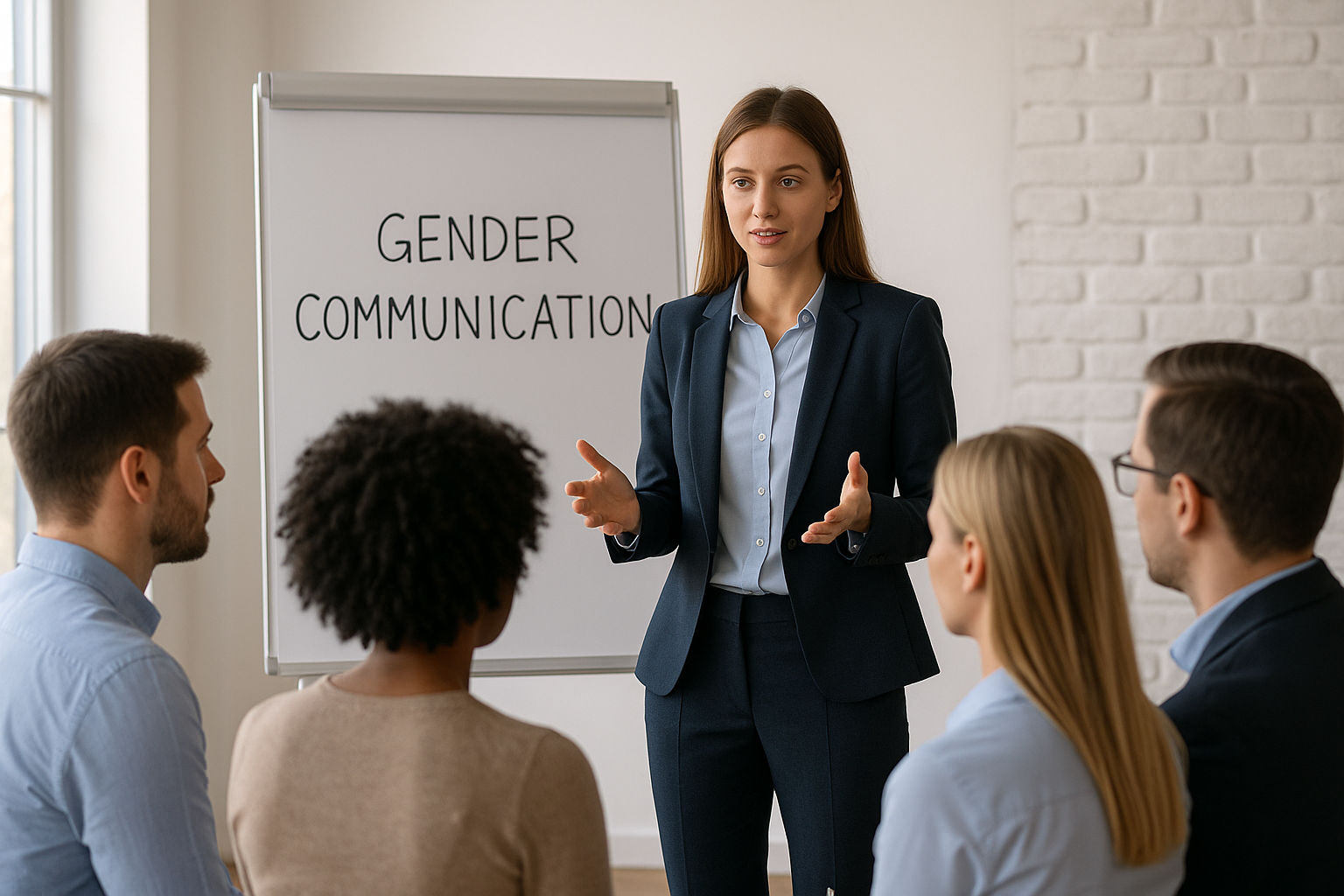The Sorry Trap: When Apologizing Puts You at a Disadvantage
Apologizing is often seen as a hallmark of civility and emotional intelligence, a way to mend fences and restore harmony. However, there exists a paradox where apologies, instead of smoothing over conflicts, can sometimes lead to unintended negative consequences. This exploration delves into the intricate dynamics of apologies, examining how they can place individuals at a disadvantage. By dissecting scenarios where apologies backfire, we aim to uncover the psychological, social, and professional ramifications of this seemingly benign act. This article seeks to illuminate the complexities of the "Sorry Trap," providing insights into when and why apologizing might not be the best course of action.
The Psychology of Over-Apologizing

Over-apologizing can stem from deep-seated psychological patterns, often rooted in a desire to please or avoid conflict. Individuals who frequently apologize may suffer from low self-esteem, believing that they are perpetually at fault. This behavior can inadvertently reinforce a negative self-image and erode confidence. Furthermore, habitual apologizers might be perceived as less competent or assertive by others, which can undermine their authority and credibility. Understanding the psychological underpinnings of excessive apologies is crucial, as it enables individuals to break free from this cycle and develop healthier communication patterns that do not compromise their self-worth.
Social Dynamics and Power Imbalances

In social interactions, apologies can inadvertently reinforce power imbalances. When one party consistently apologizes, it can signal submission, allowing the other party to assert dominance. This dynamic is particularly prevalent in hierarchical relationships, such as between employers and employees or in traditional gender roles. The act of apologizing can be misinterpreted as an admission of weakness, leading to exploitation or manipulation. Recognizing the social dynamics at play is essential for navigating relationships effectively, ensuring that apologies do not become tools for maintaining inequitable power structures but are instead used judiciously to foster mutual respect.
The Professional Pitfall of Apologies

In professional settings, apologies can have significant career implications. While acknowledging mistakes is important, excessive apologizing can undermine professional credibility and hinder advancement. Colleagues and superiors may perceive frequent apologies as a lack of confidence or competence, which can impact one's reputation and opportunities for leadership roles. Moreover, in competitive environments, apologies might be strategically leveraged by others to gain an upper hand. Professionals must learn to balance accountability with assertiveness, ensuring that apologies are sincere and warranted without compromising their professional standing or potential for growth.
Cultural Variations in Apologizing

Cultural norms heavily influence the perception and practice of apologizing. In some cultures, apologies are a routine part of polite interaction, while in others, they may be reserved for serious transgressions. Misunderstandings can arise in multicultural settings when individuals interpret apologies through their cultural lens. For instance, an apology intended as a gesture of goodwill in one culture might be seen as an admission of guilt in another. Navigating these cultural differences requires sensitivity and awareness, as well as a willingness to adapt communication styles to ensure that apologies are conveyed and received as intended.
The Gender Apology Gap

Research indicates a gender disparity in apologizing, with women generally apologizing more frequently than men. This phenomenon is partly attributed to social conditioning, where women are often expected to be more nurturing and conciliatory. However, this tendency can place women at a disadvantage, especially in professional or competitive environments, where excessive apologizing might be perceived as a lack of assertiveness. Addressing the gender apology gap involves challenging societal norms and empowering individuals to communicate confidently, ensuring that apologies are not disproportionately expected or exploited based on gender.
Apologies and Emotional Labor

Apologizing can be a form of emotional labor, particularly in service industries or caregiving roles. Employees in these sectors are often expected to apologize to maintain customer satisfaction, even when they are not at fault. This expectation can lead to emotional exhaustion and resentment, as individuals must continually suppress their own feelings to placate others. Recognizing the emotional labor involved in apologizing is crucial for fostering healthier workplace environments, where employees are supported and empowered to express themselves authentically without the undue burden of unnecessary apologies.
The Role of Apologies in Conflict Resolution

While apologies can be instrumental in resolving conflicts, they are not always a panacea. In some cases, apologies might be seen as insufficient or insincere, particularly if not accompanied by meaningful action or change. Effective conflict resolution requires more than just words; it demands a commitment to addressing underlying issues and rebuilding trust. Apologies should be part of a broader strategy for reconciliation, one that involves active listening, empathy, and a willingness to make amends. By understanding the limitations of apologies, individuals can better navigate conflicts and foster genuine resolution.
The Impact of Public Apologies

Public apologies, whether from celebrities, corporations, or politicians, are often scrutinized for their sincerity and effectiveness. In the digital age, these apologies can quickly go viral, influencing public perception and brand reputation. A poorly executed public apology can exacerbate the situation, leading to further backlash and loss of trust. Crafting a successful public apology requires transparency, accountability, and a clear plan for corrective action. By analyzing high-profile apologies, we can glean insights into what constitutes an effective apology and how public figures can navigate the delicate balance of acknowledging mistakes while preserving their credibility.
Apologies and Legal Implications

In legal contexts, apologies can have significant implications, potentially being construed as admissions of liability. This is particularly relevant in cases of medical malpractice, personal injury, or corporate negligence. Legal advisors often caution against apologies, as they can be used as evidence in court proceedings. However, some jurisdictions have enacted "apology laws" that protect apologies from being used against defendants, recognizing their value in facilitating resolution and healing. Understanding the legal ramifications of apologies is essential for individuals and organizations, ensuring that they navigate the intersection of empathy and liability with caution and awareness.
Strategies for Effective Apologizing

To avoid the pitfalls of the "Sorry Trap," individuals must develop strategies for effective apologizing. This involves assessing the context and intent behind the apology, ensuring that it is warranted and sincere. Effective apologies are specific, acknowledging the impact of one's actions and expressing genuine remorse. They also include a commitment to change, demonstrating accountability and a desire to make amends. By refining their approach to apologizing, individuals can communicate more authentically and avoid the negative consequences of over-apologizing, ensuring that their apologies serve as bridges to understanding rather than barriers to empowerment.
Rethinking the Apology Paradigm

The exploration of the "Sorry Trap" reveals the nuanced and multifaceted nature of apologies, highlighting their potential to both heal and harm. By understanding the psychological, social, and professional dimensions of apologizing, individuals can navigate this complex terrain with greater awareness and intentionality. Apologies should not be reflexive or obligatory but rather thoughtful and meaningful, serving as catalysts for positive change. As we rethink the apology paradigm, we empower ourselves to communicate with integrity and confidence, ensuring that our apologies enhance rather than diminish our personal and professional relationships.